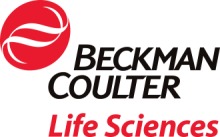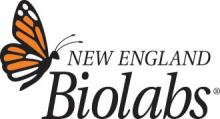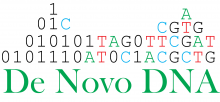Sponsored Workshops
| Date | Time (PST) | Title | Company | |
| Tuesday, June 15 | 11:25-11:55 | Digital Genome Engineering: Unlocking the Unlimited Potential of Biology | Inscripta | Learn More |
| Tuesday, June 15 | 11:55-12:25 | Streamlining genome editing workflows using the rhAmpSeq™ CRISPR Analysis System | Integrated DNA Technologies (IDT DNA) | Learn More |
| Wednesday, June 16 | 11:25-12:25 | Accelerating Answers for Your Workflows | Beckman Coulter Life Sciences | Learn More |
| Wednesday, June 16 | 11:25-11:55 | Cell-free amplification of genome-scale large DNA | OriCiro Genomics | Learn More |
| Wednesday, June 16 | 11:55-12:25 | Constructing High-Complexity Golden Gate Assemblies and High-Throughput Protein Engineering via Miniature Cell-free Protein Synthesis Workflows | New England Biolabs | Learn More |
Digital Genome Engineering: Unlocking the Unlimited Potential of Biology
Inscripta - Tuesday, June 15, 11:25-11:55 am (PST)
CRISPR-based genome engineering has the potential to accelerate discovery. Unfortunately, current approaches suffer from limitations in scalability, diversity of edit types, and accessibility. The OnyxTM, a benchtop genome engineering platform overcomes these limitations by providing the capability to generate up to 10,000 precisely edited and trackable strain variants in E. coli or up to 6,000 such variants in S. cerevisiae, in a single run. This enables novel approaches to engineering of gene, pathway, and genome-wide targets in S. cerevisiae and E. coli. The platform simplifies the complex editing workflow, from design to engineered cell library, by including software, reagents, benchtop instrument and analytics. This talk will highlight the technology and diverse applications including high-throughput target discovery, metabolic engineering and accelerated protein production & optimization. The OnyxTM platform will usher in the next era of genomics, enabling the researcher to transition from observational to interventional approach. This will have far-reaching benefits for biology, bio-industrial science, agriculture, healthcare, and alternative energy.
Streamlining genome editing workflows using the rhAmpSeq™ CRISPR Analysis System
Integrated DNA Technologies (IDT DNA) - Tuesday, June 15, 11:55 am -12:25 pm (PST)
CRISPR systems enable targeted editing in a wide variety of organisms by introducing single- or double-strand breaks (DSBs) to DNA, which can be leveraged to introduce genomic changes. However, unintended DSBs can occur off-target at genomic loci with partial complementarity to CRISPR-Cas guide RNA (gRNA) sequences, which can result in genotype/phenotype changes in the edited cells. Genome editing at on- and off-target sites can be quantified with multiplexed targeted next-generation sequencing (NGS) but requires bioinformatics expertise to analyze. Here we present the rhAmpSeq CRISPR Analysis System as a streamlined end-to-end solution for designing assays, generating sequencing libraries, and analyzing NGS data for quantifying CRISPR on- and off-target editing effects without the need for bioinformatics experience.
Objectives
- Learn how rhAmpSeq CRISPR Analysis System can help you streamline your CRISPR genome editing analysis
- Learn how to simultaneously quantify intended edits and evaluate off-target modifications with accuracy
- Learn about reducing off-target effects without compromising potency
Accelerating Answers for Your Workflows
Beckman Coulter Life Sciences - Wednesday, June 16, 11:25 am -12:25 pm (PST)
Join the Beckman Coulter Life Sciences Team to discover the latest opportunities to accelerate answers for your workflows in synthetic biology.
The Beckman team will share about the following products:
- BioLector XT Microbioreactor
- EMNetik 24 Benchtop Nucleic Acid Cleanup Device
- Automated liquid handlers, including the Echo Acoustic Liquid Handler
The workshop time will include a deep dive on these products as well as time to answer your questions.
Cell-free amplification of genome-scale large DNA
OriCiro Genomics - Wednesday, June 16, 11:25-11:55 am (PST)
"Currently, researchers in life sciences use cell-based methods to clone large DNA molecules. Although these approaches remain the gold standard, they are infamous for being time-consuming, inefficient, and unable to deal with cell-toxic DNA sequence,
We have developed new technology which contained 26 kinds of purified enzymes that are essential for the E. coli chromosome replication cycle. This technology enables to amplify exponentially circular DNA having oriC (E. coli chromosomal origin) in an isothermal condition even from a single template molecule.
A simple two-step in vitro process enables cell-free assembly and amplification of circular DNA molecules without the need for E. coli transformation and culture.
In this workshop, we will discuss about features as follows
- Artificially designed viral vector and plasmid construction
- Amplification of long DNA and sequences difficult to amplify by PCR
- Alternative to time-consuming and laborious E. coli cloning
- Recombinant phage production
- Efficient cloning of any DNA sequence, including cytotoxic and GC and AT-rich
Constructing High-Complexity Golden Gate Assemblies and High-Throughput Protein Engineering via Miniature Cell-free Protein Synthesis Workflows
New England Biolabs - Wednesday, June 16, 11:55 am - 12:25 pm (PST)
Large DNA constructs (>10 kb), including small genomes and artificial chromosomes, are invaluable tools for genetic engineering and vaccine development. However, the manufacture of these constructs is laborious. To address this problem, we applied new design insights and modified protocols to Golden Gate assembly. While this methodology is routinely used to assemble 5-10 DNA parts in one-step, we found that optimized assembly permitted >50 DNA fragments to be faithfully assembled in a single reaction. We incorporated these findings into a suite of webtools that design assembly reactions, and applied these insights to genome construction, carrying out rapid assembly of the 40 kb T7 bacteriophage genome from 52 parts and recovering infectious phage particles after cellular transformation. The new Golden Gate assembly webtools, protocols, and design principles can be applied to rapidly engineer a wide variety of large and complex assembly targets.
In the second part of our workshop, we will discuss our cell-free protein synthesis (CFPS) systems. Our reconstituted PURExpress® and lysate-based NEBExpress® are complimentary CFPS systems that offer rapid and reliable methods for protein expression. By providing an open environment that is decoupled from cellular growth and viability, these CFPS systems enable a myriad of applications, including protein labeling, toxic protein production and molecular diagnostics. With the increasing accuracy and precision of small volume liquid handlers (e.g. Beckman's Echo 525), CFPS represents an efficient option for high-throughput screening of mutagenic libraries. In addition to characterizing the miniaturization of PURExpress® and NEBExpress®, we will present simple workflows for fast and effective screening of arrayed mutants.








